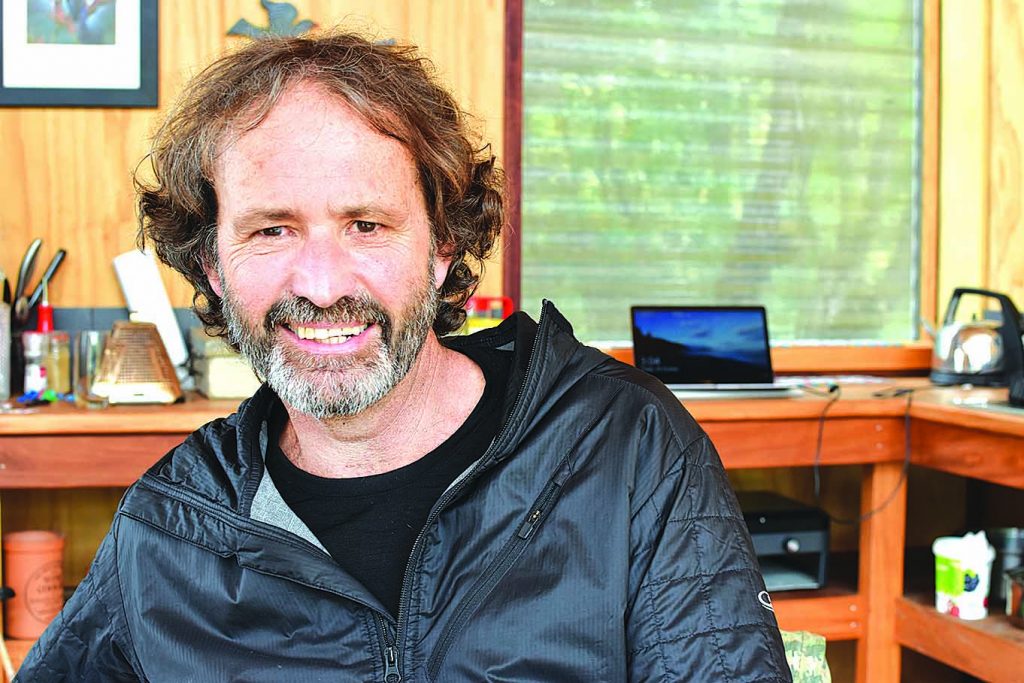
There’s a growing realisation around the world that, after the coronavirus crisis, things may never be the same again.
And that’s a good thing, according to those who have long argued for a more sustainable way of life, and who see the pandemic threat as an opportunity to change the way we live.
At the global scale, a group of experts at the World Economic Forum have already highlighted the need for a radical reassessment.
“Covid-19 reflects a broader trend: more planetary crises are coming. If we muddle through each new crisis while maintaining the same economic model that got us here, future shocks will eventually exceed the capacity of governments, financial institutions, and corporate crisis managers to respond. Indeed, the coronacrisis has already done so.”
One of those leading the charge in New Zealand is Wellington-based policy researcher Dr Mike Joy who, along with four colleagues has started Better Futures Forum (BFF) – an organisation with a mission “to create broad momentum for a transition towards a more resilient Aotearoa”.
Speaking to The GB Weekly last week about his initiative, Dr Joy said the country must forge a new future. “We can’t go back to what we had. This is the turning point; we have to change.”
He stressed the importance of demonstrating widespread public support for the movement. “We have to give them [the Government] the mandate; we have to make sure that we get some action.” He strongly argues for a community-driven approach. “Following the conventional process of putting in submissions gets you nowhere; the way to get the mandate is to get this stuff out to the public and get them to push the politicians to make the change.”
The early signs of public engagement are encouraging; since the BFF launched its website on 13 April, Dr Joy said they had been overwhelmed by the response. “We’ve had heaps of support from within new Zealand.”
He considers Golden Bay is ahead of the curve and would be a natural fit with the initiative. “It feels to me like it’s a place that has already implemented some of the things we need to do.”
BFF’s mission is ambitious, but has been broken down into a number of manageable key areas: Land and water, infrastructure, transport, buildings and housing, energy, and economy. Some of the main aims listed under these headings include a transition to regenerative agriculture; upgrading drinking water, wastewater and stormwater infrastructure; investing in low-impact transport systems; using renewable construction materials; building a resilient and sustainable energy system; and strengthening local design, engineering and manufacturing.
“We’ve got little groups working on each one of these,” explained Dr Joy. “And we will be publishing short reports on each one.”
While the BFF core team members have their individual expertise, Dr Joy said all five share the ability to think beyond their specific disciplines – something he believes is crucial in developing the sorts of policies required. “The one thing we have in common is that we are systems thinkers. We totally understand interconnectedness; we can see how everything works together and that things can’t be thought about in silos. That to me is where government always goes wrong.”
From the start, BFF was determined to be fully inclusive, explained Dr Joy, especially of young people and Maori. “Over and above everything we do, we want to have that. It’s a big part of what we’re trying to do.”
One of the youth organisations already contributing to the work is School Strike for Climate, which Dr Joy said was on the same wavelength as the core group. “Young people instinctively put these things together and they’re pretty strong on the social side of things, which is a big part of the picture.”
He believes that being able to visualise things helps to “fire people up” and plans to create a live online map to build up a picture of ideas from around the country. “We’ll have people from the regions putting in their ideas on the map, and people can click on that and find out what the regions are up to.
“We could have the Golden Bay group [Mohua 2040] in there – put together some ideas of what they would like to see for their future and have that sitting on that site. It will be powerful for us to have our first regional group.”
Dr Joy is conscious that some may consider BFF’s mission too radical, but he believes it will lead to a more rational future. “If you want crazy, what we’ve got now is crazy. People never get that because it’s all they’ve ever known. They don’t realise how bizarre the whole thing is.”
And he underlines the importance of utilising the pandemic as a catalyst for change. “This opportunity is too valuable to squander.”
For more information about Better Futures Forum, go to: https://bff.org.nz/
World Economic Forum https://www.weforum.org/agenda/2020/03/a-green-reboot-after-the-pandemic/
Join in the conversation:
Go to: https://gbweekly.co.nz/top-stories/ Go to Top Stories and leave a comment. Tell us what you think, share your ideas. We’ll summarise feedback in next week’s issue.
Article: Jo Richards.
